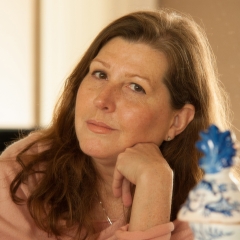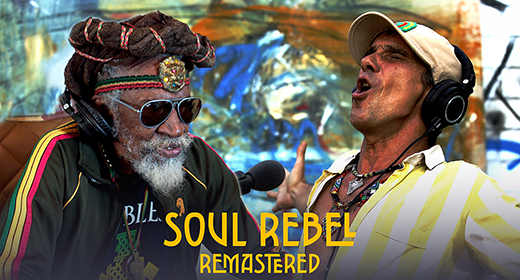by Alison Porter: Why do some people seem to take life’s challenges in their stride when others are on their knees? The secret is resilience and it’s a skill you can learn.

Life can blindside us with so many difficulties—often all at the same time—and it can feel like you’ll never get out of the storm. But by learning how to work with your pain and keep your mind from running wild with disaster scenarios, you can learn to surf the waves rather than feel drowned by them.
It all comes down to trusting in yourself and your capacity to not only survive, but to thrive. Here are some of the building blocks that will help you to calm your fears and develop faith in your ability to overcome any challenge life throws at you.

- Take Refuge in the Here and Now
When a relationship breaks up, we lose a loved one, our finances falter, or our health suddenly declines, our first instinct is to worry. Our minds start to leap out into the future and fixate on the worst-case scenario. It makes us feel like we’re doing something—like we have some control over the situation—but it only makes it worse.
What makes you resilient is staying calm and reconnecting to your safety in the present moment. Right now, you’re OK. There’s a roof over your head, food in the fridge, and friends you can call. Resting in the safety of the present moment, you’re able to calm yourself and self-soothe. You can put a stop to terrorising yourself with your deepest fears. Staying in the here and now means you’ll have emotional energy available to deal with issues as they arise, rather than panicking and exhausting yourself by worrying about outcomes that may never happen.
- Feel Your Feelings
This may seem contrary to the idea of staying safe in the present moment, but expressing emotions and allowing your fears to run rampant aren’t the same thing. When you calm your fears by focusing on your present safety, you’re creating the headspace that allows you to attune to your true emotions. And when you do, you can let them be fully expressed.
At first it may seem terrifying to touch that level of pain, because pain is something we’re always trying to avoid. But when you allow yourself be present to your suffering, to cry if you need to, to wail, to beat a pillow—whatever helps you to get the pain out—then on the other side of that lies a calm you may never have experienced before.
When we suppress our feelings, they build up like a pressure-cooker and can feel utterly overwhelming. When we allow ourselves to express them, they dissipate, and we’re left with a huge sense of relief. By feeling our feelings, we bend so we don’t break.
- Know That the Only Way Out Is Through
When difficult times arrive on your doorstep, it can feel like all you want to do is just pull the blankets over your head and hide. And sometimes that helps, but it’s just a temporary solution to a more permanent problem. When you come to understand that whatever you’re going through is a process and there are no shortcuts—no way to avoid the pain—it will dawn on you that the only way out is through. And that’s a powerful awareness. You can stop expending your emotional energy wishing things were different, and start finding solutions. Acceptance is key to resilience. But accepting things as they are doesn’t mean you can’t change them. It means that you’re at peace within yourself and can then use all your resources to help heal or make practical changes to improve your situation.
- Allow Pain and Joy to Co-Exist
No-one wants to do illness, suffering, or grief 24/7, so taking a break from whatever’s bothering you is no bad thing. Even in the toughest times, there can be moments of joy. Got a hospital appointment you’re dreading? Ask a friend to come with you, then plan a lunch or an evening out afterwards to lift your spirits. If you’re finding it hard to smile again after a relationship breakup or a bereavement, do something that gets you out of the house and shifts your energy. Go and watch a comedy movie for a couple of hours of distraction. It’s not a betrayal of your problems or lost love to set aside your troubles for a little while and enjoy yourself. In a strange way, our suffering can deepen our appreciation for those moments of joy, and for the pain that we’re going through. It’s as though all our senses become heightened by a new depth of emotion, and we can appreciate the gifts of life and love for better and for worse. Life is never just one emotional tone—happiness and sadness live side by side in all of us.

- Ask Empowering Questions
It’s never helpful to ask yourself questions that have no answer. All that will do is send your head into a spin and make you worry even more. “Why me?” is probably the worst question you could ask. It’s not helpful in any way, and keeps you disempowered as you fret about why something has happened to you. A better question is “What do I need right now?” or “Where can I find support?”.
Looking for meaning when something has just happened is also a dead-end street. We can turn ourselves inside out searching for the purpose of an event or affliction, when we’d be better off putting that mental and emotional energy to work on discovering what will be helpful to us. The meaning and purpose of big life shocks tend to make themselves known to us over time. Rushing to pigeon-hole our experiences just adds more stress. A gentle enquiry into how you feel and what would help is an empowering approach. It also avoids self-attack and self-blame at a time when you need to be focusing all your energy on healing.
- Examine What You’re Making it Mean
If you’re really struggling emotionally, take a look at what you’re making this circumstance mean about yourself. Taking responsibility isn’t the same as self-blame. When you take responsibility, you accept where you are, acknowledge what you can’t change, and move forward with what you can change. But if you’re blaming yourself, you’re expending precious emotional energy on making yourself suffer, instead of moving forward toward healing. You can accept that your actions could have been different without needing to continually berate yourself for your failings. Resilience comes from the ability to acknowledge the truth about a situation, without having to make it mean something about yourself that’s rigid and one-dimensional—like accusing yourself of being a bad person or someone who always messes up. We make mistakes, accidents happen, we could have done better—all these things are true, but to be genuinely resilient we must accept where we’ve fallen short of our own expectations and still find ourselves worthy of our own love and care.
- Look for Evidence That Shows You Can Trust Yourself
Let’s face it, this probably isn’t your first rodeo. Chances are you’ve dealt with big problems before and overcome them. Few among us escape life unscathed by suffering. So start looking for evidence of your own resilience. Cast your mind back and remember situations where you’ve triumphed over the odds, forgiven someone, or learned to let go. Think of some of the issues you’ve struggled with in the past and recall how you found your way through. When you look, you’ll find plenty of times when you thought you’d never make it through, but here you are on the other side. What once seemed like it would last forever has passed. Believe in yourself and your power to endure. Trust the strength that lies within you to help you with your healing now.
Alison Porter is a journalist, coach, and spiritual counsellor, and the author of Stronger Than Before: Take Charge of Your Healing to Survive and Thrive with Breast Cancer. She writes and speaks about resilience, women’s empowerment, and self-care.
 Alison Porter is a journalist, coach, spiritual counsellor and interfaith minister. After an eclectic career that includes film production, publishing and a high-profile corporate life heading up PR divisions for the Channel Tunnel and sale of the Millennium Dome – all while pursuing her interests in spiritual psychology – Alison’s journey with breast cancer began early in 2015. She is now celebrating a cancer-free life after taking an unconventional approach to treatment.
Alison Porter is a journalist, coach, spiritual counsellor and interfaith minister. After an eclectic career that includes film production, publishing and a high-profile corporate life heading up PR divisions for the Channel Tunnel and sale of the Millennium Dome – all while pursuing her interests in spiritual psychology – Alison’s journey with breast cancer began early in 2015. She is now celebrating a cancer-free life after taking an unconventional approach to treatment.









































